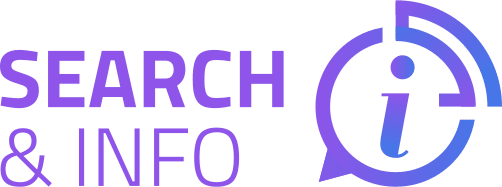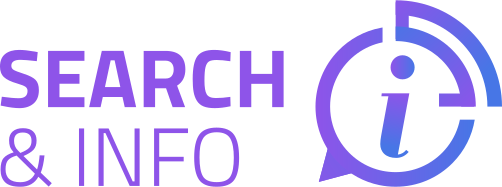Table of Contents
In today&8217;s world, personal loans have become a common financial tool for individuals to manage various expenses, whether it&8217;s consolidating debt, covering unexpected medical bills, financing a home renovation, or pursuing higher education. While personal loans offer flexibility and convenience, they also come with risks if not managed responsibly. Understanding how to navigate these financial instruments is crucial to avoid falling into common pitfalls that could lead to debt traps and financial distress. This comprehensive guide aims to provide insights into the responsible use of personal loans, highlighting common pitfalls and offering strategies to mitigate them.
Understanding Personal Loans:
Before delving into the nuances of responsible borrowing, it&8217;s essential to grasp the fundamentals of personal loans. A personal loan is a type of unsecured loan that doesn&8217;t require collateral, making it accessible to a broad range of borrowers. These loans typically come with fixed interest rates and repayment terms, allowing borrowers to budget effectively. Personal loans can be obtained from traditional banks, credit unions, online lenders, or peer-to-peer lending platforms.
Assessing Your Financial Situation:
The first step in using personal loans responsibly is conducting a thorough assessment of your financial situation. Evaluate your income, expenses, existing debts, and savings to determine your borrowing capacity and repayment ability. It&8217;s crucial to borrow only what you need and can afford to repay comfortably within the specified term. Avoid the temptation to borrow more than necessary, as it can lead to overindebtedness and financial strain.
Setting Clear Objectives:
Identifying clear objectives for taking out a personal loan is essential for responsible borrowing. Whether you&8217;re consolidating high-interest debt, covering emergency expenses, or financing a major purchase, having a specific goal will help you stay focused and disciplined in your borrowing approach. Avoid using personal loans for discretionary expenses or non-essential purchases, as it can lead to unnecessary debt accumulation.
Comparing Lenders and Loan Terms:
Not all personal loans are created equal, so it&8217;s crucial to shop around and compare offers from different lenders. Pay attention to factors such as interest rates, fees, repayment terms, and eligibility criteria when evaluating loan options. Opt for reputable lenders with transparent terms and favorable conditions. Be wary of predatory lenders who may exploit vulnerable borrowers with exorbitant interest rates and hidden fees.
Understanding the Cost of Borrowing:
Before committing to a personal loan, it&8217;s essential to understand the total cost of borrowing, including interest charges and fees. Use online calculators or consult with lenders to estimate your monthly payments and the overall cost of the loan. Be mindful of the annual percentage rate (APR), which represents the total cost of borrowing expressed as a yearly rate. Avoid loans with high APRs, as they can significantly increase the cost of borrowing over time.
Creating a Repayment Plan:
Developing a solid repayment plan is critical to managing personal loan debt responsibly. Calculate your monthly payments based on the loan amount, interest rate, and term, and incorporate them into your budget. Make sure your repayment plan is realistic and sustainable, taking into account your income and expenses. Consider setting up automatic payments to avoid missed or late payments, which can damage your credit score and incur penalties.
Building Emergency Savings:
One of the best ways to avoid the need for future borrowing is by building an emergency savings fund. Having a financial cushion to cover unexpected expenses can help you avoid relying on personal loans or credit cards in times of crisis. Aim to save at least three to six months&8217; worth of living expenses in a readily accessible account, such as a high-yield savings or money market account.
Avoiding Debt Traps:
Personal loans can be a valuable financial tool when used responsibly, but they can also lead to debt traps if mismanaged. Avoid common pitfalls such as borrowing more than you can afford, taking out multiple loans simultaneously, or using loans to fund a lifestyle beyond your means. Be cautious of payday loans, cash advances, or high-interest installment loans, which can trap borrowers in cycles of debt with sky-high interest rates.
Monitoring Your Credit:
Taking out a personal loan can impact your credit score, so it&8217;s essential to monitor your credit report regularly. Check for errors or inaccuracies that could negatively affect your creditworthiness and dispute them if necessary. Make timely payments on your personal loan to demonstrate responsible borrowing behavior and improve your credit score over time. Avoid applying for multiple loans or credit cards within a short period, as it can signal financial distress to lenders.
Seeking Financial Guidance:
If you&8217;re struggling to manage your personal loan debt or facing financial hardship, don&8217;t hesitate to seek professional guidance. Consider consulting with a certified financial planner, credit counselor, or debt relief specialist who can help you explore options such as debt consolidation, renegotiating loan terms, or developing a debt repayment strategy. Taking proactive steps to address your financial challenges can prevent them from escalating into more significant problems down the line.
Using personal loans responsibly requires careful planning, discipline, and financial literacy. By assessing your financial situation, setting clear objectives, comparing lenders, understanding the cost of borrowing, and creating a repayment plan, you can avoid common pitfalls and achieve your financial goals without falling into debt traps. Remember to monitor your credit, build emergency savings, and seek professional guidance if needed to navigate the complexities of personal finance successfully. With diligence and prudence, you can harness the benefits of personal loans while safeguarding your financial well-being for the future.
Sources:
- Investopedia. &8220;Personal Loans: What You Need to Know Before You Apply.&8221; https://www.investopedia.com/personal-loans-5181385
- Consumer Financial Protection Bureau (CFPB). &8220;Personal Loans.&8221; https://www.consumerfinance.gov/consumer-tools/personal-loans/
- NerdWallet. &8220;Personal Loans.&8221; https://www.nerdwallet.com/personal-loans

